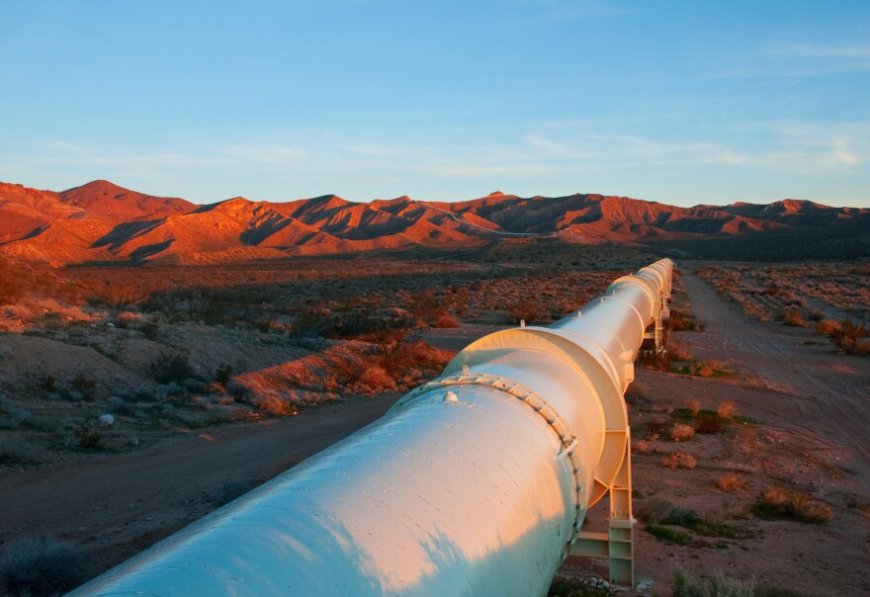India’s EM Pipeline Revival? Turkey Seeks New Deal with Iraq to Restart the Kirkuk–Ceyhan Oil Pipeline
Turkey has proposed a new deal to Iraq to revive the Kirkuk–Ceyhan oil pipeline. India stands to benefit from increased crude supply if negotiations succeed.

In a pivotal move that could reshape emerging-market (EM) energy trade dynamics, Turkey has initiated talks with Iraq to revive the 600‑mile Kirkuk–Ceyhan crude oil pipeline—a vital artery idle since 2023. With India among the world's largest oil importers from Iraq, the pipeline's reactivation signals potential downstream impacts on global crude flows, energy security, and geopolitical alliances. This investigative report explores the prospects, obstacles, regional implications, and what it might mean for India's hydrocarbon strategy.
What’s the Pipeline’s History and Current Status?
Built in the 1970s, the Kirkuk–Ceyhan pipeline was Iraq’s primary northern export route carrying up to 1.6 million barrels per day (bpd) Reuters+7Wikipedia+7Daily Sabah+7. However, since March 2023, flows have been suspended following an ICC arbitration award requiring Turkey to pay $1.5 billion in damages due to unauthorized exports by Iraq’s Kurdish Regional Government (KRG) Norton Rose Fulbright+5The National+5Daily Sabah+5.
Despite arbitration, Turkey has maintained the pipeline’s operational readiness and is now seeking a fresh agreement with Baghdad to revamp the deal—complete with broader energy cooperation in oil, gas, petrochemicals, and electricity Reuters+2Reuters+2Reuters+2.
Why Is Turkey Driven to Restart?
Several key motivations inform Turkey's push:
-
Economic recovery: Turkey's energy import bill remains a macroeconomic burden; reviving Iraqi oil imports can stabilize its energy landscape Argus Media+15Wikipedia+15Reuters+15Reuters.
-
Regional infrastructure: The pipeline aligns with the “Development Road” — a proposed highway and rail corridor linking Basra to Europe — amplifying regional trade opportunities Reuters+5Reuters+5Reuters+5.
-
Political diversification: Ankara seeks autonomy from Russian/EU energy influence, enhancing its energy diplomacy and buffer Istanbul's own energy resilience.
Roadblocks to Revival: Legal, Political, Technical
Despite readiness, significant hurdles remain:
-
Arbitration fallout: The $1.5 billion ruling remains unresolved, with Turkey appealing the award Reuters+7Reuters+7Reuters+7.
-
Revenue sharing: Disputes between Baghdad and Erbil over KRG oil earnings need a federal resolution before pipeline use Wikipedia+15AP News+15The National+15.
-
International company concerns: France-based Apikur and others are hesitant to restart operations without formal guarantees from Baghdad Reuters+3Reuters+3The National+3.
-
Geopolitical instability: Recent drone strikes on Kurdish oilfields highlight security vulnerabilities en route to Ceyhan Reuters+11tradewindsnews.com+11Reuters+11.
Why It Matters for India & Emerging Markets
India imports around 220,000 bpd of Iraqi crude, including from Kurdish fields Wikipedia. A revived pipeline could:
-
Stabilize supply: Boost consistent flow of Middle Eastern light and medium crude to Indian refineries.
-
Diversify procurement: Provide alternative routes bypassing congested Gulf shipping lanes, reducing insurance costs.
-
Lower freight costs: Corridor-based delivery could mitigate rising shipping tariffs affecting import economics.
-
Spur energy diplomacy: Enhances India’s bargaining leverage as it expands its energy partnerships in the Middle East.
Rippling Effects Across Energy Markets
Restarting the pipeline holds regional and global consequences:
-
Increased crude availability: Supply from Iraq to international markets could marginally ease global oil prices Wikipedia+1Reuters+1.
-
Turkish role solidified: Turkey’s position as a crossroads for Eurasian energy trade would greatly strengthen.
-
Geopolitical power shift: A revived pipeline could reduce OPEC member Turkey’s vulnerability to external energy politics.
-
Development Road synergy: Integrated infrastructure may attract Western investment in trade corridors and industrial corridors.
What’s the Way Forward?
Negotiations are currently in progress:
-
Draft agreement review: Iraq’s Oil Ministry is examining Turkey’s proposal, which encompasses oil, gas, petrochemicals, and electricity cooperation Reuters+2Reuters+2Reuters+2Reuters+1Reuters+1.
-
Federal–regional revenue sharing: Baghdad must resolve KRG export revenue allocation; U.S. influence could affect final terms Norton Rose Fulbright+13Reuters+13Reuters+13.
-
Legal settlement: Turkey’s overdue arbitration payment remains the central sticking point—a potential dealbreaker.
-
Pipeline repurposing: Ankara wants to extend the pipeline under the Development Road to Basra, positioning it as a dual-purpose route bloomberg.com+6Daily Sabah+6Norton Rose Fulbright+6Wikipedia+6Reuters+6Reuters+6.
India’s Strategic Takeaway
India's Ministry of Petroleum & Natural Gas and Ministry of External Affairs are closely observing developments. A revived pipeline would:
-
Increase Iraqi crude access: Facilitating contracts for IOC (Indian Oil Corporation), HPCL, BPCL.
-
Strengthen India–Iraq energy ties: In line with recent investments in Iraqi refineries.
-
Enhance refining margins: Greater availability of lighter crude aids cleaner fuel production.
-
Support Indo–Turkey cooperation: Integrated trade routes may complement India’s vision for Eurasian connectivity.
Moreover, energy corridor success could inspire similar trilateral pipelines—linking Arabian and Bay of Bengal networks.
Risks and Limitations
Persisting tensions pose challenges:
-
Pipeline security: Renewed centrifuge is essential; recent violence reminds of disruptibility Wikipedia.
-
Legal uncertainty: Unsettled damages make investor commitments tenuous.
-
Supply vs quota: KRG overproduction might breach OPEC ceilings or Iraqi law The Nationaltradewindsnews.com.
-
India’s reliance: Timing of supply ramp-up must align with India’s import planning cycle.
The Road Ahead
If negotiations succeed in the next 6–12 months:
-
The pipeline could resume operations by mid-2026, pending parliamentary ratifications from both nations.
-
India stands to gain through enhanced crude access ahead of peak refinery throughput times.
-
Financial institutions—especially those underwriting energy trade logistics—will need to reassess emerging market exposure.
Conclusion
Turkey’s renewed push to revive the Kirkuk–Ceyhan oil pipeline could mark a turning point in E.M. energy infrastructure. For India, a reliable new route from Iraq offers strategic and economic upsides. But with legal disputes, political fractures, and security risks unresolved, this is more than an infrastructure revival—it's a litmus test for regional cooperation. While the promise is substantial, the path ahead demands patience, legal clarity, and diplomatic finesse.



















































